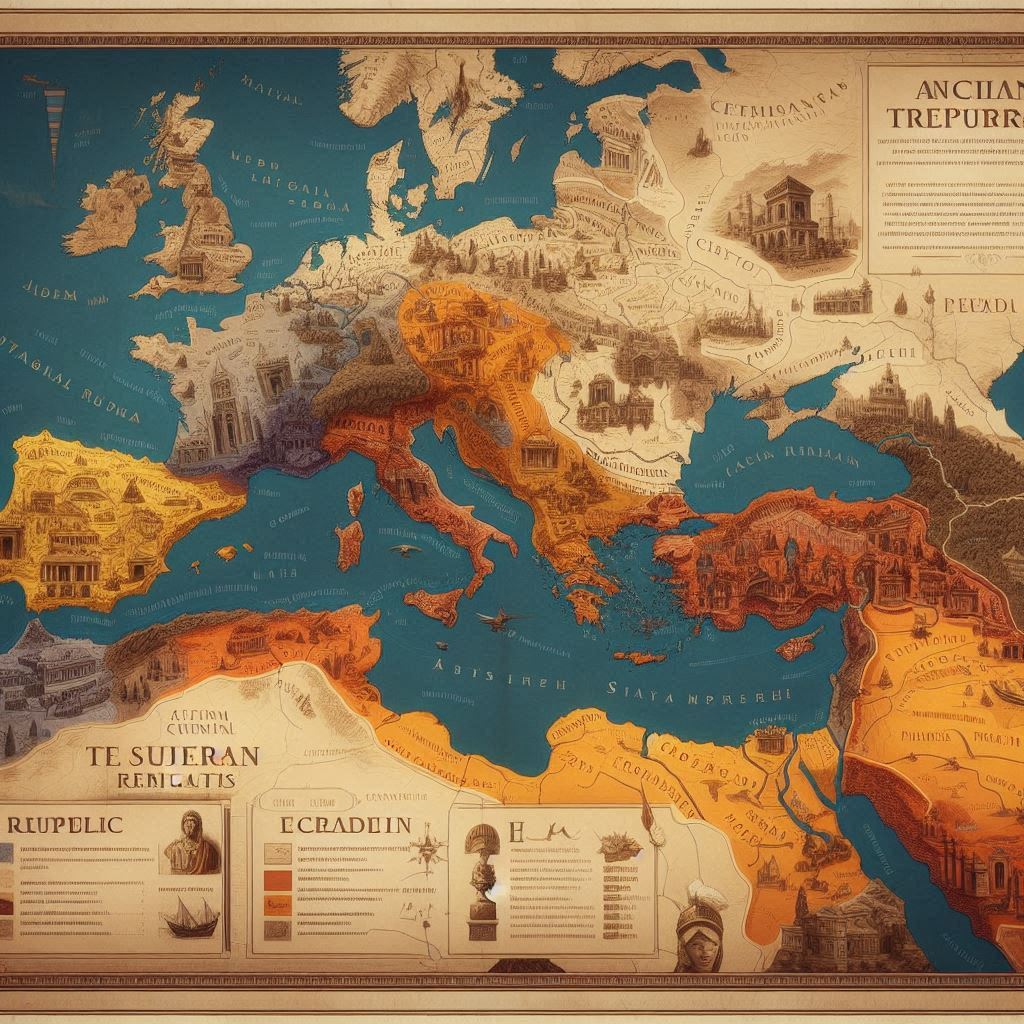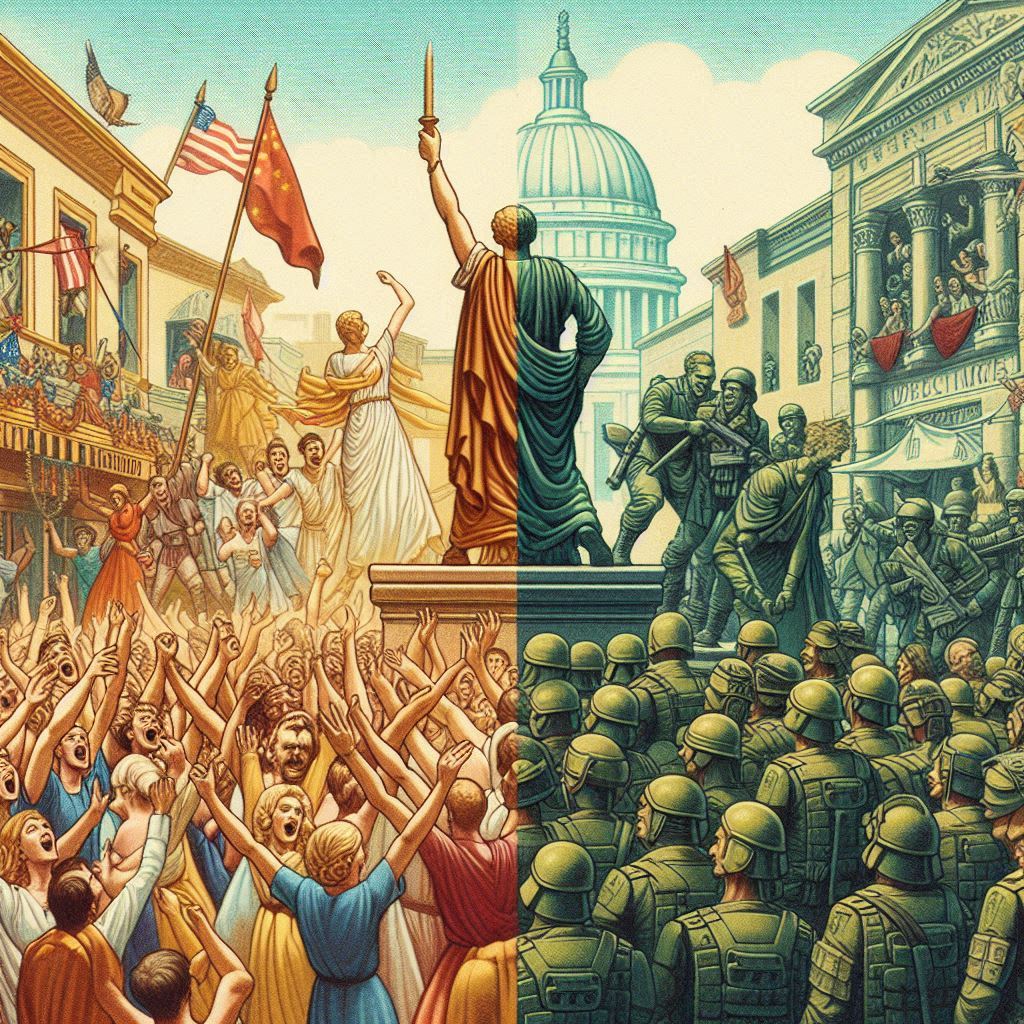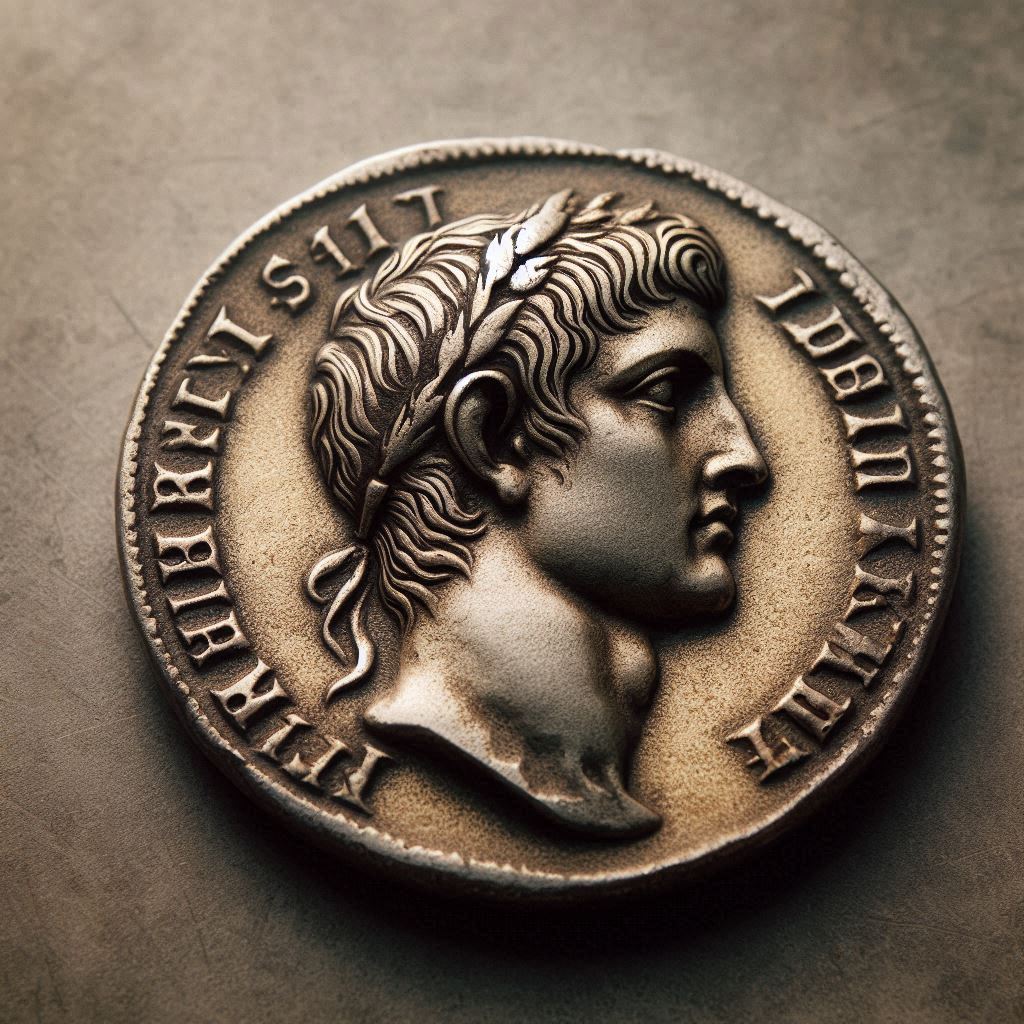The Origin of the Roman Empire is a tale of legendary figures, epic battles, and strategic power moves that transformed a small settlement into one of the most dominant empires in history. It’s a narrative that spans centuries, marked by sacrifices, battles, and a burning desire for control. Here, we delve into the birth of the Roman Empire, exploring key figures, events, and the hidden forces behind its rise.
Definition
The Roman Empire is the period of ancient Roman civilization that began when Rome transitioned from a republic to an autocratic empire. This shift started in the 1st century BC and solidified in 27 BC when Augustus Caesar declared himself the first emperor. The empire is known for its military might, architectural achievements, and structured system of governance that left a lasting impact on Western civilization.
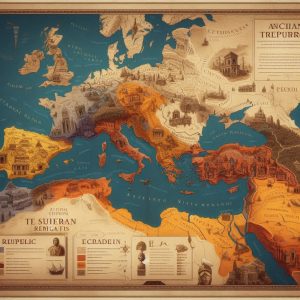
Key Figures in the Early Roman Empire
| Name | Born – Death | Main Contribution |
|---|---|---|
| Romulus | 771 BC – 717 BC | The first Roman emperor, transformed Rome from a republic to an empire. |
| Julius Caesar | 100 BC – 44 BC | Expanded Roman territory and paved the way for the transition from Republic to Empire. |
| Augustus Caesar | 63 BC – 14 AD | He was an infamous emperor known for his tyrannical rule and the Great Fire of Rome. |
| Marcus Aurelius | 121 AD – 180 AD | Last of the “Five Good Emperors,” known for his philosophical leadership. |
| Nero | 37 AD – 68 AD | Infamous emperor known for his tyrannical rule and the Great Fire of Rome. |
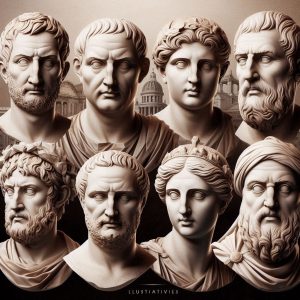
Key Stories: The Beginning of Rome
The story of Rome’s origin starts with legend. In 753 BC, Romulus, a son of Mars, the god of war, is said to have founded Rome after killing his twin brother, Remus. Rome, according to myth, was built on the Palatine Hill, and its foundation was bathed in blood—a fitting start for a civilization that would later thrive on conquest.
The shift from myth to history begins with Julius Caesar. By 49 BC, Caesar crossed the Rubicon, a decisive moment that led to a civil war. His victory consolidated power but also sowed the seeds of his downfall; he was assassinated in 44 BC. Yet, his legacy lived on through his adopted heir, Augustus Caesar.
In 27 BC, Augustus emerged as Rome’s first emperor, formally ending the Republic and marking the dawn of the Roman Empire. He implemented reforms and solidified borders, ensuring the empire’s survival for centuries.
Image Idea: An illustration of Romulus and Remus with the she-wolf, symbolizing Rome’s legendary birth, followed by a scene of Julius Caesar crossing the Rubicon.
Key Years for the Start of the Roman Empire
- 753 BC: Traditional founding of Rome by Romulus.
- 509 BC: Establishment of the Roman Republic.
- 49 BC: Julius Caesar’s crossing of the Rubicon.
- 44 BC: Assassination of Julius Caesar.
- 27 BC: Augustus becomes the first Roman emperor, marking the official start of the Roman Empire.
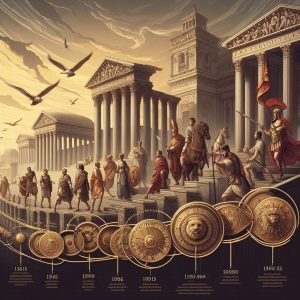
Hidden Powers in the Starting of the Roman Empire
Beneath the public story of Rome’s rise lies a web of alliances, manipulations, and secretive power moves. Behind Augustus’s rise to power was his ability to maneuver through Rome’s political system, gaining loyalty from key military generals and manipulating the Senate to maintain his dominance. The power struggles between figures like Mark Antony and Augustus were crucial but often hidden from the public eye.

Hidden Time and Public Time in the Start of the Roman Empire
Rome’s rise to empire had two faces: the public time, where rulers like Augustus presented themselves as restorers of peace, and the hidden time, filled with bloody purges and political assassinations. While the Senate publicly handed over power to Augustus in 27 BC, the hidden struggles had already shaped the path long before that. Augustus’s slow but steady accumulation of power began after Caesar’s death, stretching across more than a decade of manipulative politics.
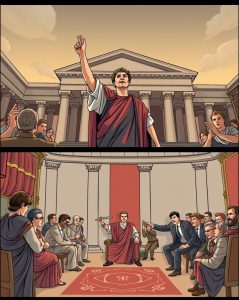
Key Battles in the Roman Empire’s Origin
Battle of Actium (31 BC): Mark Antony and Cleopatra faced off against Augustus in a decisive naval battle. With a crushing victory, Augustus eliminated his rivals, leading to his unchallenged rule over Rome.
Battle of Philippi (42 BC): Augustus and Mark Antony fought against Caesar’s assassins, Brutus and Cassius. The defeat of these conspirators solidified Augustus’s and Antony’s hold on Rome, but it also set the stage for their later rivalry.

Key Powers Behind Rome’s Rise
The Romans excelled in their military strategies, with legions that adapted to diverse battle conditions and landscapes. Additionally, Roman law provided a unifying structure that helped maintain order. The Romans also cleverly adopted the religions and customs of conquered lands, making their subjects feel less oppressed.

Public Perception vs. Reality
Publicly, Augustus portrayed the rise of the Roman Empire as a restoration of Pax Romana—the peace of Rome. He presented himself as the Princeps (first citizen) rather than a monarch. But in reality, the transition to empire involved brutal suppression of dissent, a shift to absolute rule, and the loss of the freedoms the Roman Republic once stood for.

What Actually Happened
While Augustus preached stability, his rule involved manipulative politics and military dominance. By maintaining a loyal army, he crushed opposition and restructured the government to ensure his control. He might have promised a return to Roman values, but the truth was, he had laid the foundation of a dynastic rule that marked the end of Roman democracy.
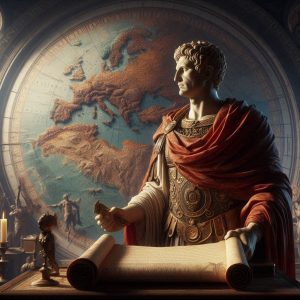
Public and Military Sacrifices
The rise of the Roman Empire wasn’t just a story of great men. Countless soldiers lost their lives expanding Rome’s borders. The Roman public endured high taxes and the loss of liberties they had enjoyed during the Republic. The price of Rome’s transformation into an empire was paid in blood, sweat, and the relinquishing of freedom.
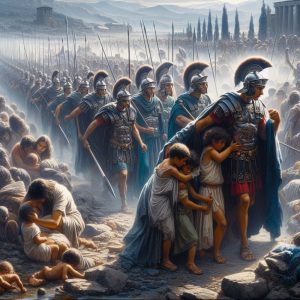
The origin of the Roman Empire is a blend of legend, ambition, and relentless conquest. It shows how a small city-state could transform into a colossal empire through strategic brilliance, but also at the cost of countless lives and liberties. What began as a republic where citizens had a voice became an empire dominated by emperors whose thirst for power reshaped the ancient world.

